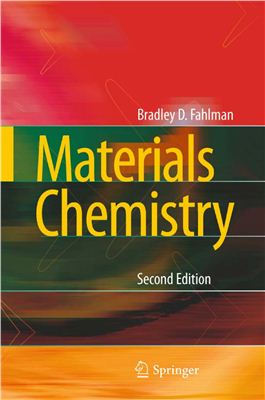2 edition, Springer Science+Business Media, 2011, ISBN: 9400706928,
736 pages
Materials Chemistry addresses inorganic, organic, and nanobased materials from a structure vs. property treatment, providing a suitable breadth and depth coverage of the rapidly evolving materials field in a concise format. The material contained herein is most appropriate for junior/senior undergraduate students, as well as first-year graduate students in chemistry, physics, and engineering fields. In addition, this textbook has also been shown to be extremely useful for researchers in industry as an initial source to lea about materials/techniques. A comprehensive list of references is provided for each chapter, which is essential for more detailed topical research.
What is materials chemistry?
Solid-state chemistry
Metals
Semiconductors
Polymeric materials
Nanomaterials
Materials characterization
Materials Chemistry addresses inorganic, organic, and nanobased materials from a structure vs. property treatment, providing a suitable breadth and depth coverage of the rapidly evolving materials field in a concise format. The material contained herein is most appropriate for junior/senior undergraduate students, as well as first-year graduate students in chemistry, physics, and engineering fields. In addition, this textbook has also been shown to be extremely useful for researchers in industry as an initial source to lea about materials/techniques. A comprehensive list of references is provided for each chapter, which is essential for more detailed topical research.
What is materials chemistry?
Solid-state chemistry
Metals
Semiconductors
Polymeric materials
Nanomaterials
Materials characterization

